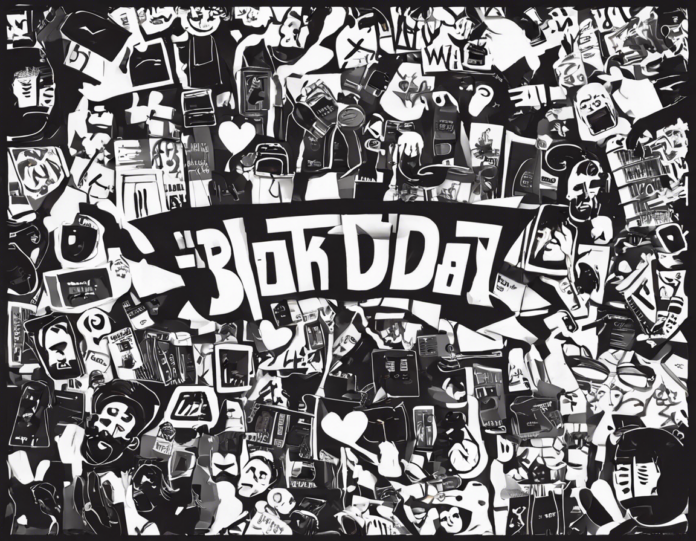February 14th is a date celebrated worldwide as Valentine’s Day, a day dedicated to love, romance, and relationships. However, in some regions, this day holds a completely different significance. In Pakistan, February 14th is observed as Black Day. This day is marked with protests, black flags, and slogans against the idea of celebrating Valentine’s Day due to its perceived promotion of Western values and culture. Let us explore the history, significance, impact, and controversies surrounding Black Day on February 14th.
History of Black Day on February 14th
The tradition of observing Black Day on February 14th in Pakistan started as a counter-movement to Valentine’s Day celebrations. In the early 2000s, conservative groups and organizations in the country began to campaign against the observance of Valentine’s Day, denouncing it as a Western import that goes against Islamic teachings and cultural norms. This led to the emergence of Black Day as a symbol of protest and resistance.
Significance of Black Day
Cultural and Religious Resistance
Black Day symbolizes a form of cultural and religious resistance against what is perceived as the imposition of Western ideals on Pakistani society. Many conservative groups view Valentine’s Day as a threat to traditional values and an attempt to undermine Islamic principles.
Promotion of Pakistani Identity
By observing Black Day, supporters aim to promote and uphold the values of Pakistani culture and heritage. The emphasis is on celebrating local traditions and strengthening national identity instead of adopting practices from foreign cultures.
Impact of Black Day on Society
Social Division
The observance of Black Day has led to social division within Pakistani society. While some view it as a patriotic act of preserving cultural identity, others see it as a form of intolerance that restricts personal freedoms and choices.
Commercial Impact
The controversy surrounding Valentine’s Day and Black Day has also had a commercial impact. Businesses that cater to the Valentine’s Day market face challenges in promoting their products and services amidst the opposition from groups supporting Black Day.
Media Attention
Black Day often garners media attention both within Pakistan and internationally. The debates, protests, and events surrounding the day spark discussions about cultural imperialism, nationalism, freedom of expression, and religious influences on society.
Controversies Surrounding Black Day
Freedom of Expression
Critics of Black Day argue that the observance restricts freedom of expression and choice. They believe that individuals should have the right to celebrate occasions like Valentine’s Day without facing backlash or censure from conservative groups.
Religious Interpretation
The religious interpretation of Black Day varies among different groups. While some view it as a defense of Islamic values, others criticize it as an extremist stance that promotes intolerance and divisiveness.
Impact on Youth
The debate over Black Day versus Valentine’s Day also impacts the youth in Pakistan. Young people often find themselves torn between cultural expectations and personal preferences, leading to generational conflicts and identity crises.
Practical Ways to Navigate Black Day
Respect Local Customs
If you are in Pakistan during Black Day, it is important to respect local customs and sensitivities. Avoid public displays of affection and be mindful of the sentiments of those around you.
Engage in Dialogue
Engaging in respectful dialogue with individuals who support Black Day can help foster understanding and bridge cultural divides. Listening to different perspectives can lead to greater tolerance and acceptance.
Support Local Businesses
During times of cultural controversy like Black Day, supporting local businesses that are affected by the boycott of Valentine’s Day can make a positive economic impact and show solidarity with the community.
Frequently Asked Questions (FAQs) About Black Day on February 14th
1. What is the origin of Black Day on February 14th?
Black Day on February 14th originated in Pakistan as a counter-movement to Valentine’s Day celebrations, with conservative groups protesting the adoption of Western culture.
2. How is Black Day observed?
Black Day is typically observed through protests, the display of black flags, and slogans against Valentine’s Day. Some individuals also choose to wear black clothing as a mark of solidarity.
3. Is Black Day only observed in Pakistan?
While Black Day originated in Pakistan, similar movements against Valentine’s Day celebrations have been reported in other countries as well, reflecting broader debates on cultural influences.
4. What are the main arguments of those supporting Black Day?
Supporters of Black Day often argue that it is a way to uphold Pakistani cultural values, resist Western influences, and preserve the sanctity of Islamic teachings.
5. How can individuals show support for Black Day?
Those who support Black Day can participate in peaceful demonstrations, share messages on social media, and avoid engaging in activities associated with Valentine’s Day on February 14th.
In conclusion, the observance of Black Day on February 14th in Pakistan symbolizes a complex interplay of cultural, religious, and social factors. While it serves as a platform for voicing resistance against perceived threats to local traditions, it also raises questions about tolerance, freedom of expression, and national identity. By understanding the history, significance, and impact of Black Day, individuals can engage in informed discussions and promote mutual respect and understanding in diverse societies.
